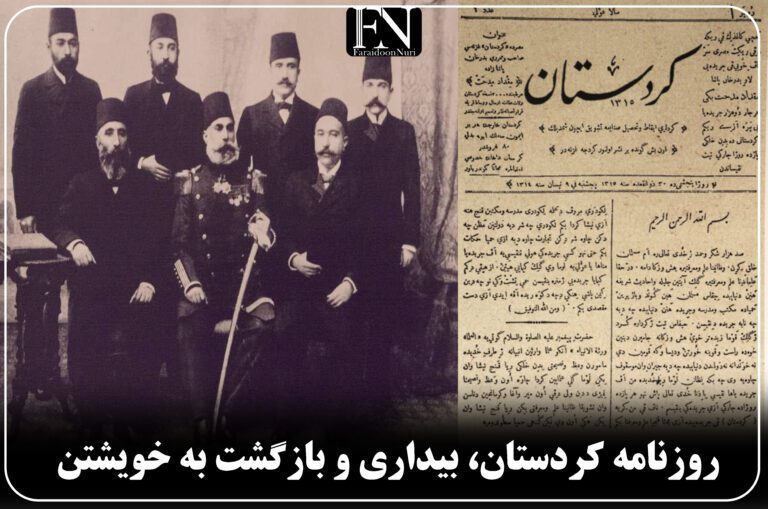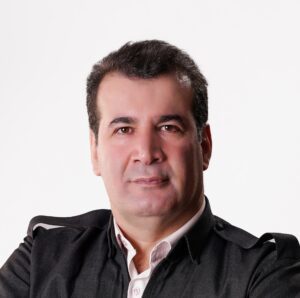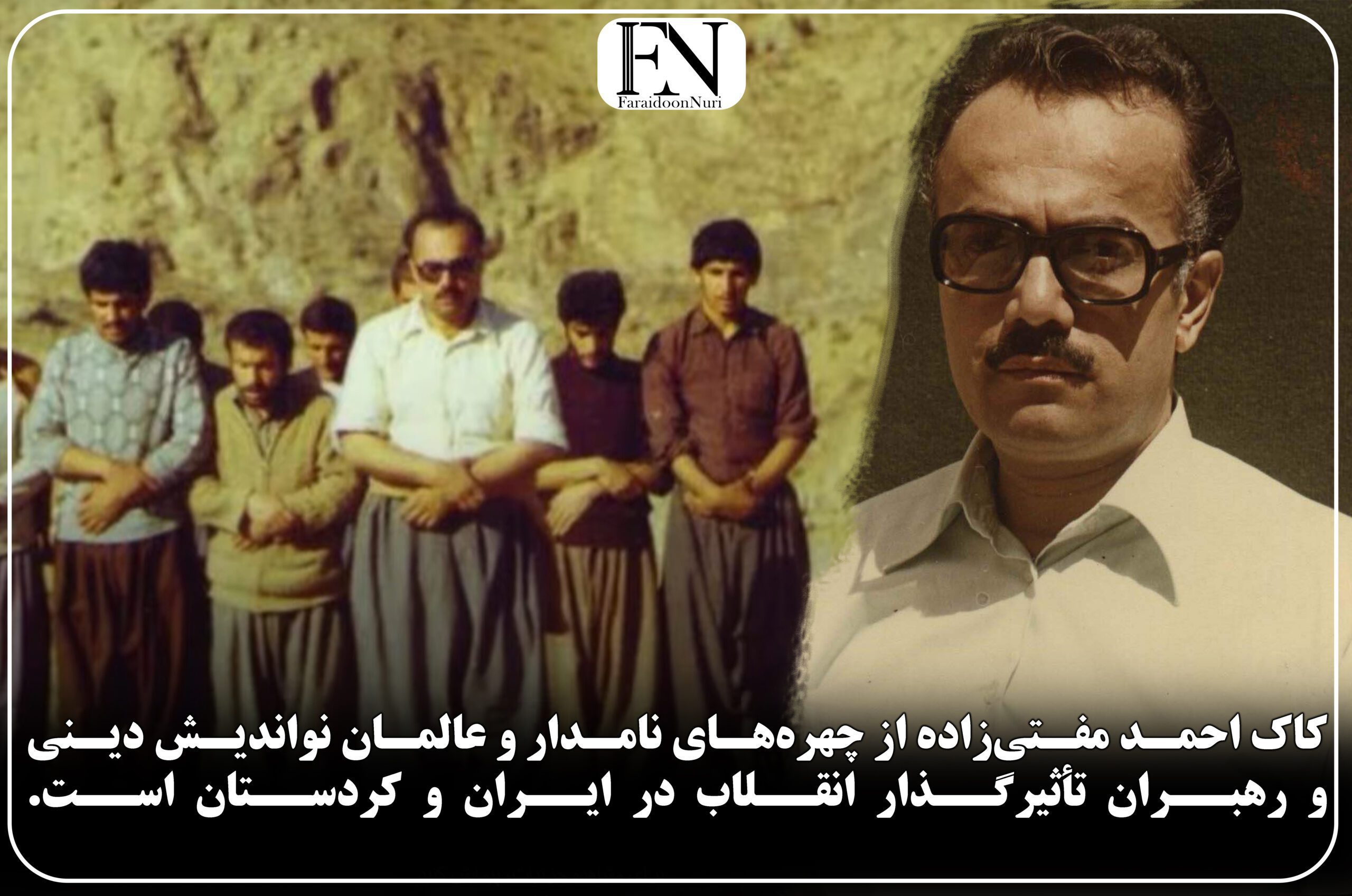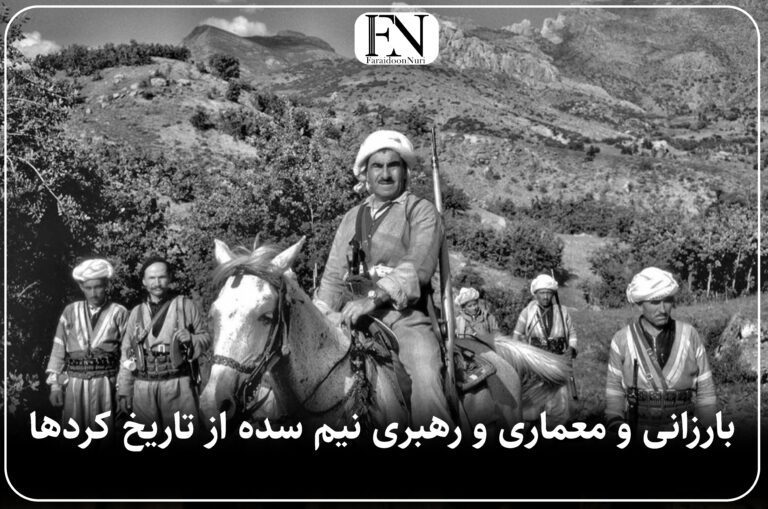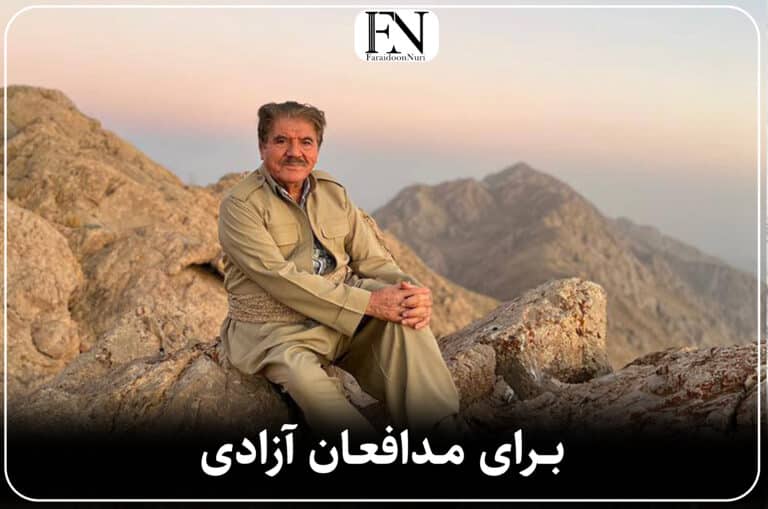The Mofti family has been one of the most influential families in contemporary history of Kurdistan in promoting and explaining religious concepts, as well as developing and spreading national and traditional culture. His grandfather, Allama Mufti Dashti, his father, the late Professor Mahmoud Moftizadeh, and his uncles were all prominent and enduring figures in the field of culture and religion in Kurdistan during their time.
His father, Mamosta Mahmoud Moftizadeh, was a well-known scholar of his time and, along with Haji Rahman Agha Mahtadi, was one of the founders and professors of Shafi’i jurisprudence at the University of Tehran. The occasional presence of young Kak Ahmad, who was educated in the schools and religious seminaries of Kurdistan, at the University of Tehran and his mastery of both rational and traditional subjects in Shafi’i jurisprudence drew the attention and admiration of Mr. Mahtadi. This relationship eventually led to his marriage with Khadijeh Khanum Mahtadi.
After his uncle, Mamosta Mullah Khaled Moftizadeh, a prominent teacher at the religious school and a popular judge in Kurdistan who was approved by the judicial authorities and served as a judge and responsible for handling personal status matters for the people of Kurdistan for many years, resigned from his duties in 1975, Kak Ahmad took on these responsibilities at the suggestion of the Kurdistan judges. He served in this position until the victory of the revolution, providing positive services and being a reference point for resolving personal status disputes among the people.
Like most members of his family, he was well-versed in classical Kurdish language and literature and worked for a while at the Kurdish Radio in Tehran. In his youth, in the early 1960s, he was arrested and imprisoned by the SAVAK (Iran’s intelligence agency) for fighting against the Pahlavi regime and being accused of membership and representation of the Democratic Party in Tehran.
Kak Ahmad was an influential figure in the contemporary history of Kurdistan and Iran, whose deep impact on post-revolution events in Kurdistan and Iran has garnered both many supporters and opponents. His opponents, mainly members and supporters of secular Kurdish groups and leftist factions, some of whose prominent leaders were related to him by marriage, viewed him and his associates as the main cause of the division and eventual defeat of the Kurdish movement. They believe that the leaders of the Islamic Republic used his influence as a tool to create discord and division in Kurdistan and argue that he intentionally sought to take over Kurdish and Sunni leadership by relying on Islamic and religious discourse and the idea of Islamic unity to eliminate rivals and influential figures among the Kurds.
On the other hand, his supporters, who are now recognized as members of the Quranic School, reject such judgments and defend his positions and views. They blame leftist political groups for the damaging conflicts in Kurdistan and claim that Kak Ahmad was more committed to securing Kurdish national rights than other Kurdish political leaders. However, his strategy was to rely on religious discourse and a common language with the revolutionary spiritual leaders, with whom he had familiarity before the victory.
The deep admiration of his followers has made an objective evaluation of his leadership record challenging for them, and they generally strive to justify all his actions. Yet, the disagreement and continued conflicts among political factions in Kurdistan have inflicted significant costs on the Kurdish people, leading to the defeat and marginalization of all these factions from the far-right to the most radical leftist forces.
After the relative stabilization of the situation in Kurdistan, his former allies in Tehran and Qom, who had long been criticized by Mr. Moftizadeh for their governance methods, broken promises, and efforts to marginalize Sunni followers, could no longer tolerate his influential critiques. Consequently, his and his followers’ activities faced obstacles and interference.
After leaving Sanandaj due to the inability to continue his activities there and moving to Kermanshah, following the formation of the Shams Council (Central Sunni Council) and between the first and second congresses of this religious organization, his arrest and the arrest of the followers and members of the Quranic School and Council began. From that point, he was imprisoned for ten years, mostly in solitary confinement, until a few months before his death. He and his associates faced severe injustice, abuse, and suffering.
Such was the pain inflicted by his peers in power that in the last years and months of his life, especially shortly before his death when he was outside prison for treatment, he repeatedly advised his friends, companions, and members of the Quranic School to avoid political involvement and focus on self-purification and moral development.
An unbiased and in-depth evaluation of this influential figure’s record, free from the common dualism in contemporary historical narratives, is essential for understanding the events of the revolution in Kurdistan.
It is clear that the late Moftizadeh, as a spiritual leader and opponent of the Shah’s autocratic regime and later as a leader of one of the religious and political movements in Kurdistan claiming to solve the Kurdish issue, had various and different stances at different times. Like any other human, he was not immune to mistakes. His trust in the promises of the new rulers imposed significant and undeniable costs on himself and his rivals. His strong recommendation for his friends to avoid political participation stemmed from the bitter experience of his own political activities and their consequences for himself, his associates, and his people.
Additionally, the judgments of his opponents and critics, especially those entangled in leftist ideology in Kurdistan, about his role and record, although containing some truths, are generally mixed with preconceptions and hasty judgments. For fair witnesses of these events and informed researchers of recent history in Kurdistan, both the inconsistencies in these narratives and the contradictions in the subsequent accounts by the dominant power that imprisoned him, regarding his character and record, are clear and undeniable, considering the realities of his life, core ideas, and religious and political approaches.
While it is possible and natural to critically evaluate this figure’s political conduct and record and disagree with his political approach, it is neither fair to deny the significant contributions of this great family to Kurdish culture nor just to overlook the legendary and unparalleled resistance of this great scholar and fighter against pressures and torture and his refusal to surrender to the will of those in power. He was a symbol of resistance in prisons that forced many claimants to surrender.
Given that a detailed and accurate scientific evaluation of the last Mufti’s record, due to his role, can shed light on many aspects of contemporary Kurdish history, addressing this issue is essential and could be the subject of numerous academic theses and independent research. This task is more necessary now than ever before due to recent developments.
May his soul rest in peace and his memory be cherished.
